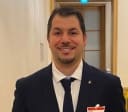Working in clinical research with a medical or paramedical qualification from outside the EU
 Proposed by JRS France Updated on il y a 2 ans
Proposed by JRS France Updated on il y a 2 ansClinical research is conducted on sick or healthy individuals with the aim of advancing biological or medical knowledge. For example, it may be carried out to determine the effectiveness or safety of a new treatment or the use of a new medical device..
The number of clinical trials continues to rise worldwide (+40% since 2015) and professionals in the sector (hospitals, healthcare companies, subcontractors) are regularly recruiting.
In clinical research, there are two jobs open to non-EU qualified nurses, pharmacists, doctors or laboratory technicians after a short training course (around 200 hours).
- Clinical Study Technician (TEC): acts as an intermediary between the investigating doctor, the medical team and the patients. In particular, they are responsible for collecting the personal information of patients in a research study. They analyse these information, share them with the medical teams, classify them and monitor patients throughout the study. They work at a single site, such as a clinical investigation centre within a university hospital (CHU). This job is accessible for holders of a Bachelor's degree (2 or 3 years).
- Clinical Research Associate (ARC): acts as an intermediary between the sponsor (who commissions the study) and the investigating doctor. They have no direct link with the patients. In the case of studies involving several clinical investigation centres, they may have to work at several sites and therefore travel frequently. In particular, they are responsible for monitoring and controlling the scientific, technical and regulatory quality of the trial. This job is generally open to those with 5 years' higher education.
You need a very good level of French (B2/C1) to work as a TEC, and a very good level of French and English (B2/C1) to work as an ARC.
How to do it?
What happens next?
Studies
Training
Health
Start or resume health studies
Find a training course in health
Study or work in the health sector
11 contributors mobilized
 a mugnier
a mugnierAdmin
 djedoTranslator
djedoTranslator niknameTranslator
niknameTranslator rohullah expertTranslator
rohullah expertTranslator ghannam laspresesTranslator
ghannam laspresesTranslator diplosamTranslator
diplosamTranslator kim.delaunayTranslator
kim.delaunayTranslator marianneukraineTranslator
marianneukraineTranslator noorTranslator
noorTranslator igornrgTranslator
igornrgTranslator olga b.Translator
olga b.Translator
